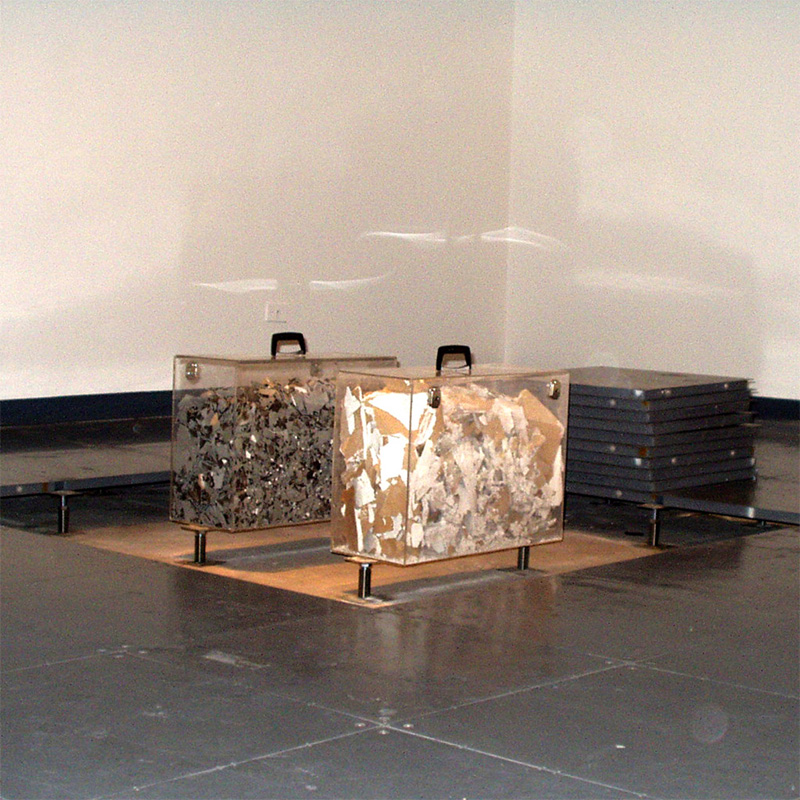UNTITLED
Ziad Antar,Ismail Bahri, Lina ben Rejeb,Amel Bennys, M’barek Bouchichi, Nidhal Chamekh, Elena Damiani, Rafik El Kamel, Jellel Gasteli, Malek Gnaoui, Pascal Hachem, Farah Khelil, Nicene Kossentini, Maha Malluh, Eva Nielsen, Yazid Oulab, Massinissa Selmani & Catalina Swinburn
27.09 to 8.11.20
Selma Feriani Gallery Tunis
CAELESTIS – 150W X 180 H X 30D
This work seeks to rescue an ancestral ritual of gratitude to water as a vital element for humanity. Caelestis addresses issues around water and the environmental crises, through taking maritime cartography, and navigation charts referring to the suyu whipala structure which she transforms into sensational structures that evoke spiritual objects featured in ceremony and traditions.
The structure was achieved by extracting the pages of historical archival documents, referring to maritime cartography & navigation charts,and weaving them into sculptures, using a method whereby Swinburn cuts the maps and charts in order to assemble them through an effort that requires a certain element of labour, in this repetitive action that resembles a meditative ritual. This unique weaving technique allows the delicate material of paper to acquire durability in the process of it attains a robust structure.
The pattern of the sculpture was inspired by the sacred ruins and textiles of Andean cultures, Caelestis connects the ancestral knowledge and scientific thinking relieving a new poetic line with the ecological movement. It opens a dialogue between conservation and innovation, continuity and transmutation. This artwork brings us closer to our cultural identity and offers an alternative view of the function of art as a vehicle of consciousness by meeting various forms of knowledge. It is essential to put ourselves at the forefront of adaptation to climate change that seeks sustainability principles, many of which are present in indigenous knowledge about landscapes and their productivity.
As such, Caelestis promotes environmental and cultural values that allow social and economic development in the territory and beyond. The world’s oceans have a fundamental impact on the planet. They regulate the climate, produce 70% of the world’s oxygen, define communities and economies and offer us innumerable mental and physical benefits.









